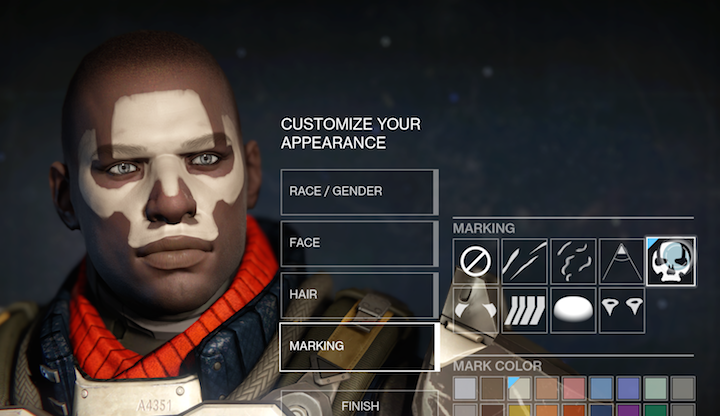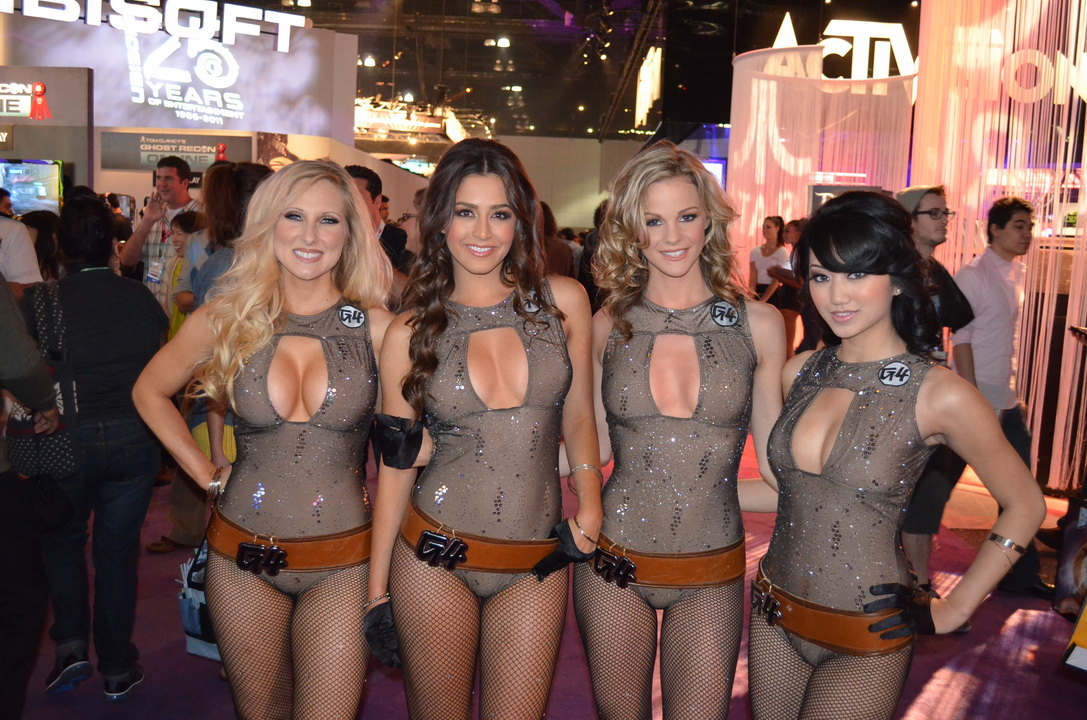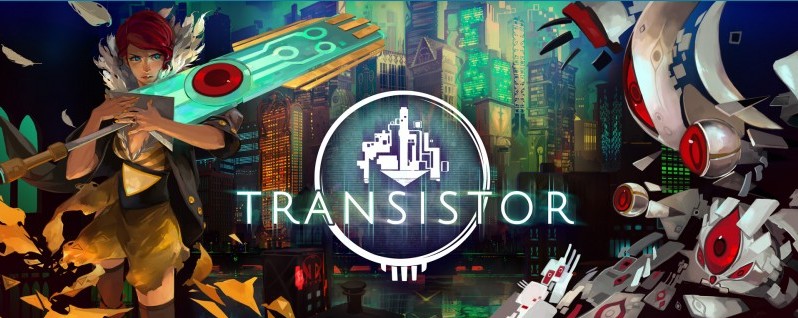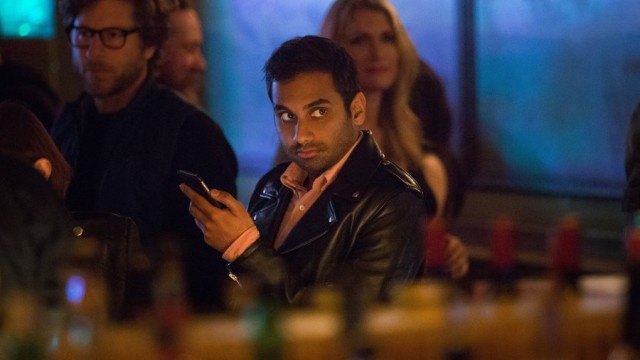We had our most recent Gaming for Good marathon last weekend, during which I played a few hours of Horizon Zero Dawn. And also last weekend, the series Orphan Black had its final episode. Both Orphan Black and Horizon Zero Dawn deal with cloning, motherhood, and technology, so I’ve been thinking a lot about the ramifications of the intersection of motherhood and technology, especially as seen in these two texts. (A quick FYI: there are spoilers ahead for both texts throughout this post.)
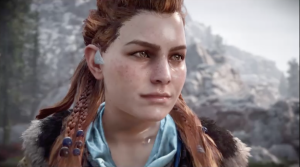 Horizon Zero Dawn follows the journey of Aloy, the protagonist of the game, as she navigates her way through a post-apocalyptic landscape. In “Motherhood, Nature and Technology in ‘Horizon Zero Dawn,’” Jessica Conditt explains that “the heart of Horizon is Aloy’s quest to uncover her true identity. Aloy has no mother, which makes her an outcast in the Nora tribe, a matriarchal society that prays to an all-knowing goddess.” As such, Conditt contends, “The identity of Aloy’s mom is the singular mystery driving Horizon’s story.” John Gonzalez of Guerrilla Games (as quoted by Conditt) explains the reason for this centralizing of Aloy’s maternal roots:
Horizon Zero Dawn follows the journey of Aloy, the protagonist of the game, as she navigates her way through a post-apocalyptic landscape. In “Motherhood, Nature and Technology in ‘Horizon Zero Dawn,’” Jessica Conditt explains that “the heart of Horizon is Aloy’s quest to uncover her true identity. Aloy has no mother, which makes her an outcast in the Nora tribe, a matriarchal society that prays to an all-knowing goddess.” As such, Conditt contends, “The identity of Aloy’s mom is the singular mystery driving Horizon’s story.” John Gonzalez of Guerrilla Games (as quoted by Conditt) explains the reason for this centralizing of Aloy’s maternal roots:
As we were exploring this world, as we were imagining the societies that would come into existence, one of the social orders that we wanted to explore was the matriarchy of this tribe…This ended up being an inspiration for Aloy’s character. Because if you have a tribe for whom parenting and in particular motherhood—bringing forth life and nurturing it—is the holiest act, the most sacred act that someone can perform, then it would be uniquely painful to not know who your mother was or where you came from.
What is interesting to me, here, in Gonzalez’s statements, is the ways that motherhood is defined as both the bringing forth and nurturing of life; but more than this, what is also interesting is the ways these definitions of mother-as-nurturer become the foundation off which the matriarchy of the Nora is framed. That is to say, the centering of mothering as a nurturing, life-giving, sacred act thereby constructs the matriarchal society of the Nora as one that perpetuates these hegemonic narratives of motherhood and maternal labor. And these hegemonic narratives of motherhood (and matriarchy) are also invoked in order to depict the post-apocalyptic society of Horizon Zero Dawn as a primitive one—that is, motherhood as something that is natural, that is connected to nature, that is tied to the earth. This connection to nature is something that we also see in the construction, more broadly, of the game’s “tribes” (a social construct that is problematic in itself), in the furs and skins the characters wear, in the weapons they wield. In all these ways, then, the act of mothering and the construction of mother-as-sacred-nurturer is used as a way of representing the post-apocalyptic world of Horizon Zero Dawn as one in which primitivity and civilization, nature and technology, are in tension.
Indeed, this tension between nature and technology is a central construct of the game. As Conditt puts it, “The Nora tribe and these robotic animals live in a tense balance. Many of the creatures are hostile, and the tribe members often hunt them down for parts. It’s a stark contrast: Aloy wearing furs, leather and feathers, hunting shiny mechanical animals that stalk her with glowing eyes.” And Conditt quotes Gonzalez, too, as saying, “If you look up the definition of nature, it is essentially whatever humans don’t do or make. Which falls apart on the face of it, because we are obviously part of the natural order…We arise from nature the same way as any other organism. In some ways, I think the concept calls into question whether or not those two forces have to be opposed to one another.” I think this tension is especially invoked in Aloy’s search for her maternal roots, in her desire to understand where (and whom) she came from—because her origins trouble this idea of humanity as “part of the natural order,” since Aloy, we come to find out by the end of the game, is the clone of a woman who lived many years ago. Aloy has, thus, come into being through technological means—her mother is a machine.
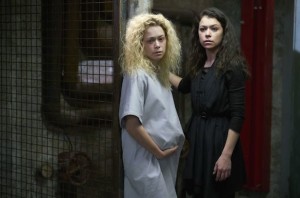 Orphan Black, of course, also features (many) clones. But the show grapples with this intersection of motherhood and technology differently than Horizon Zero Dawn does. Chaim Gartenberg assesses the impact of this intersection:
Orphan Black, of course, also features (many) clones. But the show grapples with this intersection of motherhood and technology differently than Horizon Zero Dawn does. Chaim Gartenberg assesses the impact of this intersection:
At its heart, Orphan Black has always been two shows: one is a science fiction conspiracy thriller packed with secret organizations (The Dyad Institute, Neolution, the Proletheans, Topside, and Project Castor, just to name a few), bizarre biology, and cadres of clones. The other is a look at what it means to be a family, and to choose a family, with ties that go beyond simple biology. And while Orphan Black occasionally tilted too far in one of those directions or the other, the meshing of both ideas made it stand out from the many other techno-thrillers on TV.
Orphan Black’s interrogation of this idea of what it means to be a family and the ways it unsettles the biological boundaries of kinship ties is one of the things I love most about the show and its use of the idea of cloning to trouble these things. And the ways the show troubles these boundaries of family, of motherhood and sisterhood and the ways we care for each other, reminds me of a post Jynx and I wrote last year that interrogates the ways these issues are explored in the game Ori and the Blind Forest. In this post, Jynx and I discussed, in part, Sara Ruddick’s book Maternal Thinking: Toward a Politics of Peace. I want to reproduce our explanation of Ruddick’s arguments here—because I think they have some bearing on Horizon Zero Dawn and Orphan Black’s representations of motherhood and family as well:
Ruddick seeks to disrupt the seeming powerlessness of the mother that results from the patriarchal configurations of family and parenting by arguing for the power of maternal thinking, the power of maternal thought. While Ruddick constructs maternal thinking as an example of “womanly” thought, she also argues that maternal thinking is not biologically determined but is rather a “social category,” one that both women and men can express in a variety of ways.
This social categorization of maternal thinking—the idea that both women and men can express maternal thinking—allows Ruddick to argue for social reform and to work to (re)claim motherhood as a site for power and agency. Yet, while Ruddick’s argument for the power of maternal thinking does seek to reclaim and empower women through the centering of motherhood, it also does so through problematically essentialist assertions of a sort of mystical or magical maternal power—power that Ruddick nonetheless perpetuates as being grounded within the domestic sphere. Yet, this reclaiming of power, at least, allows us to (re)imagine ways of decentering the power of the father and ways of reframing the power of the mother.
My question after all this, though, is how do we (re)frame the power of the mother in a way that does not perpetuate essentialist and normative definitions of maternal labor? That is, how do we decenter patriarchal power and (re)claim power in motherhood in a way that does not rely on the same maternal tropes that patriarchal power uses to control and constrain women in the first place? How do we represent motherhood, maternal bodies, and familial labor in ways that do not bound us to heteronormatively gendered roles and spheres?
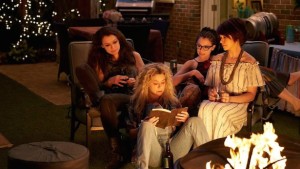 I think that Orphan Black, at least, addresses these questions with much more care than Horizon Zero Dawn does—because it seems to me that Horizon Zero Dawn, even though it attempts to trouble the boundary between nature and technology through Aloy’s clone status, nonetheless perpetuates normative constructions of motherhood as a sort of mystical natural power and matriarchy as a celebration of this magical maternal power and thinking. I think Orphan Black, however, demonstrates more care in its representation of motherhood, and I think it demonstrates this care especially in a scene in the final episode in which Sarah, Cosima, Helena, and Alison, together, work through their own maternal thinking. Indeed, the four of them grapple with their seemingly “bad” motherhood—or, in Cosima’s case, her lack of desire to be a mother at all, which is also socially constructed as bad or abnormal—and the four of them, together, reject the stigmatization of this social construct of bad mothering. And I think the fact that they do this together (and not alone like Aloy, a figure of exceptionalism and lone heroism, does) is especially important, because it reveals their resistance not to be an exception to the rule (as Aloy’s is), but rather the work of a collective, a coalition, a family.
I think that Orphan Black, at least, addresses these questions with much more care than Horizon Zero Dawn does—because it seems to me that Horizon Zero Dawn, even though it attempts to trouble the boundary between nature and technology through Aloy’s clone status, nonetheless perpetuates normative constructions of motherhood as a sort of mystical natural power and matriarchy as a celebration of this magical maternal power and thinking. I think Orphan Black, however, demonstrates more care in its representation of motherhood, and I think it demonstrates this care especially in a scene in the final episode in which Sarah, Cosima, Helena, and Alison, together, work through their own maternal thinking. Indeed, the four of them grapple with their seemingly “bad” motherhood—or, in Cosima’s case, her lack of desire to be a mother at all, which is also socially constructed as bad or abnormal—and the four of them, together, reject the stigmatization of this social construct of bad mothering. And I think the fact that they do this together (and not alone like Aloy, a figure of exceptionalism and lone heroism, does) is especially important, because it reveals their resistance not to be an exception to the rule (as Aloy’s is), but rather the work of a collective, a coalition, a family.

